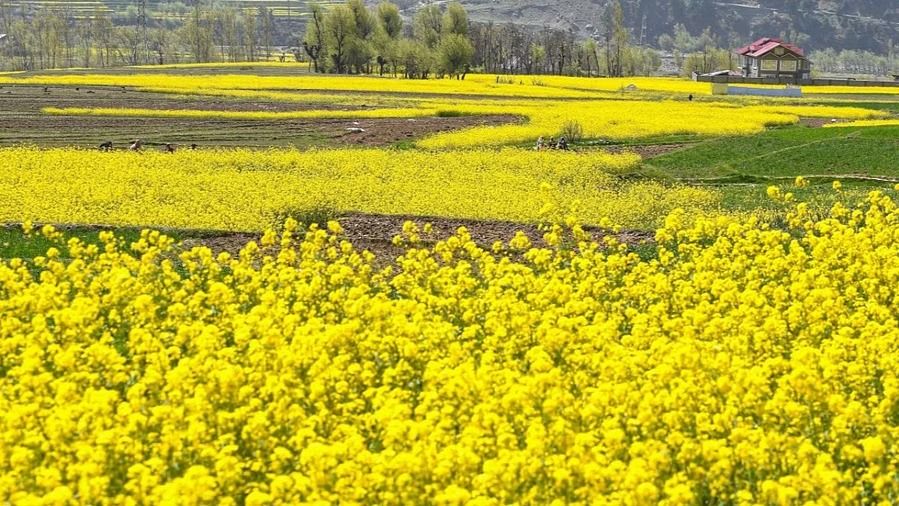Outraged by the delay in shipment of fertilizers due to geopolitical tensions, the central government is optimistic about achieving record foodgrain production in the 2024-25 rabi season. Agriculture Minister Shivraj Singh Chouhan on Tuesday announced favorable conditions at the national conference for crop growth, citing adequacy of soil moisture and water levels in reservoirs.
Earlier, Chouhan had sought to reassure stakeholders that there would be sufficient supply of key fertilizers such as urea and diammonium phosphate (DAP), insisting that “shipments are delayed. However, there is no shortage of fertilizers. We have done arrangements and there is enough supply for the rabi season.”
Setting ambitious targets for foodgrain production at 164.55 lakh tonnes in the upcoming rabi season, the government included wheat at 115 lakh tonnes and pulses at 18.15 lakh tonnes. Rabi sowing has already started and is expected to be in full swing after the Diwali festival.
Fertilizer Ministry Secretary Rajat Kumar Mishra said India has been diverting shipments of DAP from Morocco via South Africa, adding about 21 days to delivery times due to disruptions on Red Sea routes. . India imports around 60 per cent of its DAP needs (around 5.5 million tonnes for the rabies season) as well as from other countries such as Russia, Morocco, Saudi Arabia and China.
Indian Council of Agricultural Research (ICAR) Director General Himanshu Pathak is optimistic about the upcoming season and is hopeful of a good crop of climate-resistant wheat. He attributes this to favorable water levels in the reservoirs, good weather forecasts and good soil moisture conditions that prevail during the planting season. However, he believes seeds have also played an important role, noting that nearly 70 percent of last year’s wheat crop was done with biofortified, climate-resistant seeds.
Agriculture Secretary Devesh Chaturvedi today urged increased cultivation of chickpeas as production has declined in recent years, leading to imports. Officials said that on an average over the last five years, 668 lakh hectares had been cultivated under rabi and wheat covered 312 lakh hectares.
The government has now announced higher minimum support prices for wheat and other winter-sown crops to boost plantations. The conference was attended by six state agriculture ministers and Union Ministers of State for Agriculture Ramnath Thakur and Bhagirath Choudhary.
Additionally, digital initiatives for recording farmers’ data have also been discussed and crop surveys are already being carried out in two states, which are proposed to be rolled out across India next year.
Disclaimer:
The information contained in this post is for general information purposes only. We make no representations or warranties of any kind, express or implied, about the completeness, accuracy, reliability, suitability or availability with respect to the website or the information, products, services, or related graphics contained on the post for any purpose.
We respect the intellectual property rights of content creators. If you are the owner of any material featured on our website and have concerns about its use, please contact us. We are committed to addressing any copyright issues promptly and will remove any material within 2 days of receiving a request from the rightful owner.

